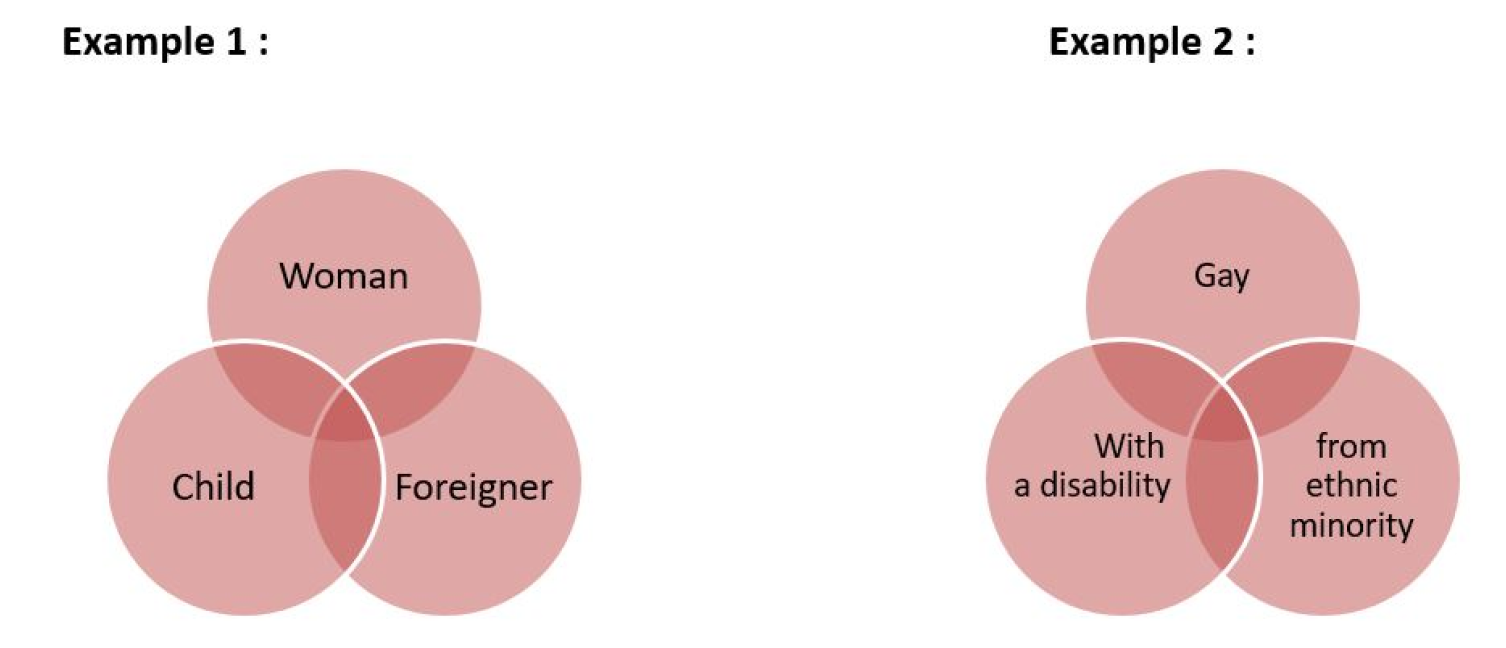Detention as a factor of vulnerability
Any detained person, whatever the reasons that led to their deprivation of liberty, is in a situation of vulnerability. The following are factors that place people in situations of vulnerability: a power imbalance between detainees and those in charge of them, an almost complete dependency upon the institution which has deprived them of their freedom or limits their movements, weakened social ties and stigmatization related to detention.
Situations of vulnerability
However, if the concept of vulnerability affects the entire population deprived of their liberty, certain detained people or groups of detainees are especially vulnerable and require additional attention and protection. In some cases, these situations may justify access to particular services. These services would not necessarily be available to the rest of the detainees, however they are not a demonstration of preferential treatment or discrimination against the majority.
As the revised Standard Minimum Rules for the Treatment of Prisoners (the "Nelson Mandela Rules") clearly state: "In order for the principle of non-discrimination to be put into practice, prison administrations shall take account of the individual needs of prisoners, in particular the most vulnerable categories in prison settings. Measures to protect and promote the rights of prisoners with special needs are required and shall not be regarded as discriminatory." (Rule 2)
For instance, a person with disabilities deprived of liberty should be eligible for "reasonable accommodation" which could consist in the building of an access ramp (if the person is in a wheelchair ) or a document available in Braille on his/her rights and duties within the institution (if the person is blind).
The responsible authorities should be permanently vigilant and diligent in regards to these groups of people. All practices and procedures within the detention facility should take this enhanced vulnerability into account. Rather than being imprisoned, other alternatives should always be sought for certain groups, especially children.
Contextual Vulnerability
There can be no exhaustive list of groups in situation of vulnerability in detention since categories can fluctuate depending on context, culture and time. A series of risk factors will determine situations of vulnerability. For this reason, "Detention Focus" favors the wording "groups in situations of vulnerability", a dynamic and evolving concept rather than "vulnerable groups" considered too static and definitive. This categorization also refutes the idea of self-vulnerability (“the person is not per se vulnerable”) and focuses on the concept of contextual vulnerability (“it is the situation that renders the person vulnerable”).
Risk factors
Factors that reinforce vulnerability in detainees can be personal, environmental or socio-cultural:
a) Personal factors: age, gender, level of education, nationality, ethnicity, physical and mental health, legal situation, economic situation, lack of information, low self-esteem, past or present trauma (including torture, domestic and sexual violence), life experiences etc. ..
b) Environmental factors: the attitude of prison personnel, personnel/detainee ratio, other prisoners’ attitudes, access to and competence of healthcare, legal and social services, informal systems of privileges, prison lay-out, possibility of redesigning/accomodating the space, absence of family ties, overcrowding etc...
c) Socio- cultural factors: the attitude of society and the media towards persons deprived of liberty, stigmatisation and social exclusion, social invisibility, attitude towards minorities, corruption, etc.
Groups in situations of vulnerability
On the basis of the above-mentioned factors people in situations of vulnerability can be grouped into different categories according to the context (even if certain groups such as children and adolescents should always be considered as being in situation of vulnerability regardless of the context).
For practical reasons, "Detention Focus" only includes a limited number of groups in situations of vulnerability even though there is no intention to exclude other situations. One of the selection criteria for these groups is whether there exists international or regional standards that states must uphold to guarantee protection of these groups. This gives a legal framework for detaining authorities to work within and guidance to monitoring bodies in places of detention. Another essential criteria is the universal prevalence of risks of abuse and violence towards these specific groups.
The database therefore makes it possible to research and filter issues of detention as it applies to the six following groups:
- Women
- Children
- Lesbians, gays, bisexuals, transgender or intersex (LGBTI) persons
- Persons living with a physical or mental disability
- Foreigners
- Ethnic minorities or indigenous people
Other people and groups may also find themselves in situations of vulnerability:
- Either due to their age or health: sick people, people with terminal illnesses, the elderly, people living with HIV, drug users, etc…
- Either because of their status within the criminal justice system: people in pre-trial detention, people suspected of terrorism or security threats against the State; death row prisoners, inmates sentenced to life in prison, sexual offenders, etc…
Multiple vulnerabilities
The combination of personal, environmental and socio-cultural factors leads to the concept of multiple vulnerabilities of some people deprived of liberty. Such combinations show the intersection between the affected groups and the importance of having a dynamic and evolving idea of vulnerability.
The examples above illustrate the concept of multi-vulnerability: the darker the zone, the higher the person’s risk of being vulnerable. These situations, which are far from being exceptions in places where people are deprived of their liberty, require the authorities to protect and pay special attention to those concerned, given the multiple risks that they are exposed to.
All persons deprived of their liberty have rights. Therefore, the vulnerable situations they find themselves in, either temporarily or permanently, should never be a hindrance to the enjoyment of their rights or be used against them. They should always be consulted in decisions concerning them.

